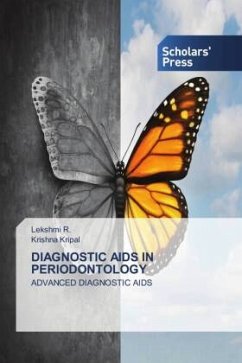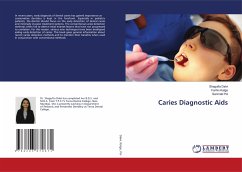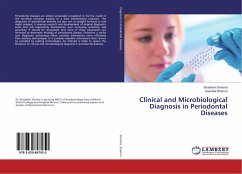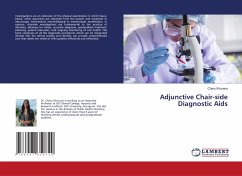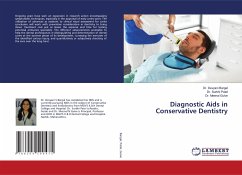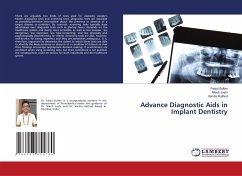
Advance Diagnostic Aids in Implant Dentistry
Versandkostenfrei!
Versandfertig in 6-10 Tagen
27,99 €
inkl. MwSt.

PAYBACK Punkte
14 °P sammeln!
There are arguably two kinds of tests used for assessing people's health: diagnostic tests and screening tests. Diagnostic tests are regarded as providing definitive information about the presence or absence of a target disease or condition. By contrast, screening tests typically have advantages over diagnostic tests such as placing fewer demands on the healthcare system and being more accessible as well as less invasive, less dangerous, less expensive, less time consuming, and less physically and psychologically discomforting for clients. Screening tests are also, however, well-known for bein...
There are arguably two kinds of tests used for assessing people's health: diagnostic tests and screening tests. Diagnostic tests are regarded as providing definitive information about the presence or absence of a target disease or condition. By contrast, screening tests typically have advantages over diagnostic tests such as placing fewer demands on the healthcare system and being more accessible as well as less invasive, less dangerous, less expensive, less time consuming, and less physically and psychologically discomforting for clients. Screening tests are also, however, well-known for being imperfect and they are sometimes ambiguous. It is, therefore, important to determine the extent to which these tests are able to identify the likely presence or absence of a condition of interest so that their findings encourage appropriate decision making. If practitioners are confident when using screening tests, but their confidence is not justified, the consequences could be serious for both individuals and the healthcare system.




